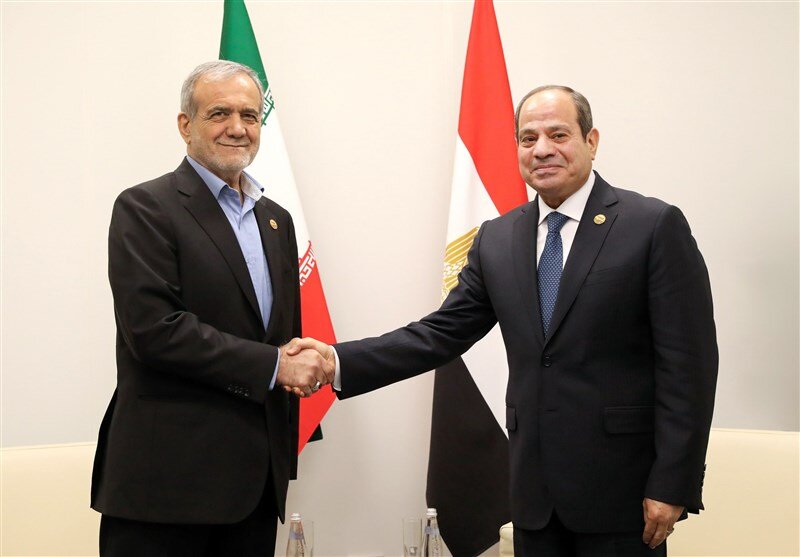‘The enemy of my enemy is my friend’
A look at Egypt’s stance on the Israeli-Iranian confrontation

CARIO - Amid the recent military escalation between Israel and Iran, Egypt has adopted a balanced position reflecting its comprehensive strategic vision. Politically, Cairo condemned Israeli strikes on Iranian territory, warning that further escalation could plunge West asia into chaos, threatening regional security and stability.
This aligns with Egyptian Foreign Minister Badr Abdelatty’s emphasis on dialogue as an alternative to military options—a stance underscoring Egypt’s determination to avoid being dragged into an open confrontation between two regional powers while preserving its mediating role in a manner that safeguards its interests and those of its allies.
Military preparedness and economic vulnerabilities
Militarily, Cairo is bolstering its defensive capabilities along its borders with Gaza and the Persian Gulf. Ongoing upgrades to its air force and air defense systems—including advanced fighter jets, IRIS-T missiles, and HQ-9B systems—serve as a deterrent against spillover into Sinai or Red Sea waters. Egypt complements this with open security coordination with Washington and Tel Aviv to prevent accidental military incidents that could trigger tensions beyond its regional capacity to manage.
Economically, reports reveal fragility in Egypt’s energy sector due to reliance on Israeli supplies. The suspension of gas exports during tensions with Iran disrupted fertilizer plants and power stations, inflicting heavy losses. Weak domestic gas production and dependence on imported energy loans expose structural vulnerabilities, pushing the government to accelerate self-sufficiency plans and reduce reliance on volatile partners.
Diplomatic mediation and strategic balancing
Logically, Cairo is cautiously pursuing regional stability through diplomatic channels. Its mediating role has become pivotal in de-escalation efforts between Iran and Israel, as well as in Gaza, where Egypt collaborates with the U.S. and Qatar to leverage truces into halting broader hostilities. Egypt relies on soft power and its unique position as a negotiation conduit among regional actors, bolstered by its economic leadership and historical mediator status.
This three-pronged strategy reflects a calculated balancing act:
1. Public and diplomatic condemnation of military escalation to protect regional stability.
2. Enhanced military readiness to defend vital borders and strategic resources.
3. Commitment to mediation as a tool to contain conflict and expand regional influence while avoiding uncontrolled chaos.
This approach underscores Egypt’s conscious effort to solidify sovereign roles without sacrificing ties with Washington or Tel Aviv—or jeopardizing core economic and security interests. Below, we dissect the dimensions of Egypt’s stance on the Israeli-Iranian confrontation.
The backdrop of Egypt’s official and popular support for Iran
Egyptian-Iranian relations have warmed notably, as seen in official statements following Israel’s June 13 attack on Iran. Cairo’s foreign ministry denounced the strike as a violation of international law and a threat to regional peace—a principled position reflecting gradual high-level dialogue, including bilateral presidential meetings and intensified foreign minister contacts in recent months.
Support extended beyond diplomacy: Al-Azhar’s Grand Imam Ahmed El-Tayeb condemned Israel’s "repeated aggression." These moves signal a strategic vision linking U.S.-Israeli pressures on sensitive issues (e.g., Palestinian displacement) to the need for a strong regional partner capable of counterbalancing Israel’s dominance.
Public sentiment and solidarity narratives
On the grassroots level, social media and influencers expressed solidarity with Iran, invoking painful memories like the 1970 Bahr al-Baqar massacre and the 1967 war. Such narratives describe Israel as an untrustworthy historical enemy, fueling public support for a regional counterbalance. With traditional Arab allies weakened, Egyptian opinion increasingly favors non-traditional partnerships, including with an Iran seen as capable of inflicting strategic damage on Israel.
Military and strategic dimensions
The Egyptian-Iranian convergence serves as a tactical counterweight in a volatile region. Cairo recognizes that unchecked Israeli military supremacy threatens its national security, especially amid the collapse of traditional Arab fronts (Syria, Lebanon, Iraq, Jordan) that once dispersed Israeli focus. Iran’s military prowess thus offers Egypt strategic leverage, complicating Israeli calculations and creating space to secure its interests.
This implicit alliance—despite ideological differences—reflects Egyptian pragmatism: it cannot afford direct confrontation with Israel without strong allies, nor can it abandon Palestinian rights or accept Israeli displacement schemes into Sinai.
Future trajectories and regional implications
Egypt’s response to the Israeli attack hints at a shifting regional order. While no formal alliance with Tehran has been declared, on-the-ground cooperation suggests deeper ties may emerge, particularly if Israeli escalation and U.S. pressures persist.
Regionally, stronger Egyptian-Iranian relations could redraw strategic maps, weakening Israeli hegemony and reshaping the Palestinian issue. This shift may force Israel and the U.S. to recalibrate policies, especially as Washington realizes Egypt cannot remain isolated without seeking powerful allies.
This phase reaffirms the adage "the enemy of my enemy is my friend" in international politics. Despite historical and ideological complexities, shared challenges are driving Egyptian-Iranian coordination—a dynamic that could restore strategic equilibrium in a chronically unstable West Asis.
